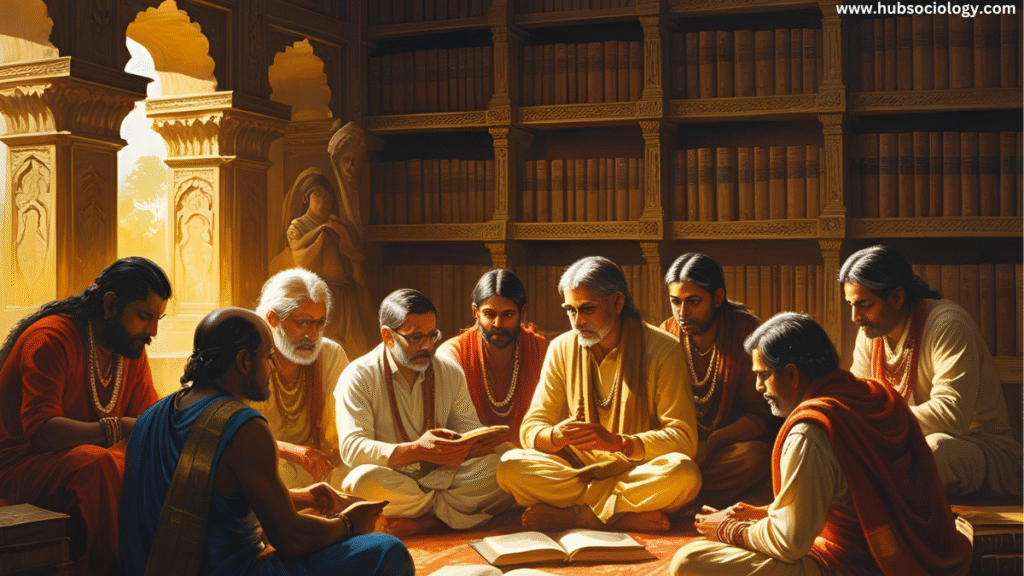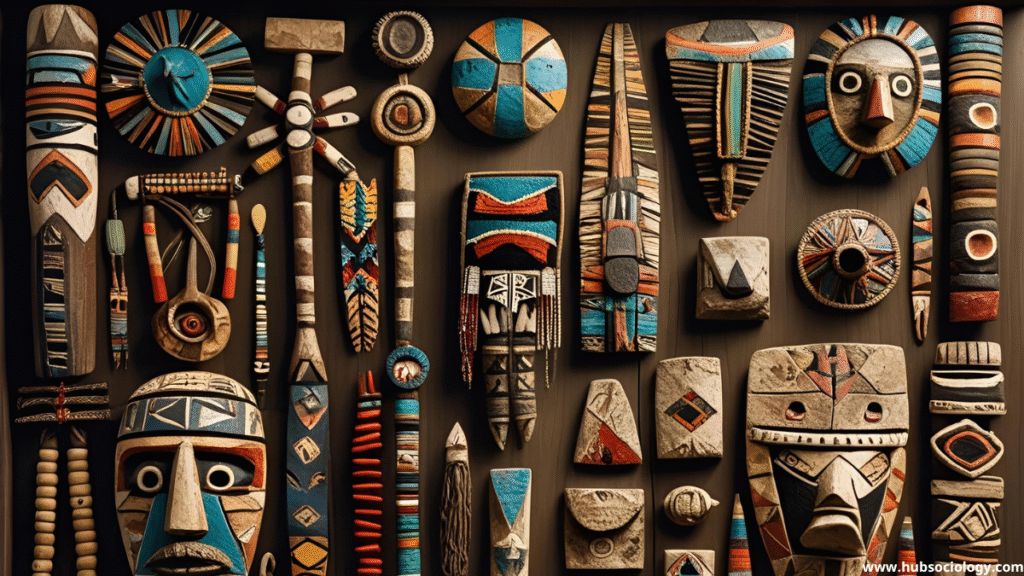Introduction
Social anthropology, as an academic discipline, studies human societies, cultures, and social institutions through empirical research and comparative analysis. In India, the emergence and development of social anthropology have been deeply influenced by colonial history, indigenous intellectual traditions, and post-independence nation-building processes. Unlike Western anthropology, which often studied “other” cultures from a distance, Indian social anthropology evolved with a focus on the complexities of its own society—its caste system, tribal communities, religious practices, and rural-urban dynamics.
This article explores the historical and sociological factors that shaped the emergence of social anthropology in India, key contributors to the discipline, and its contemporary relevance.

Colonial Roots and Early Ethnographic Studies
The origins of social anthropology in India can be traced back to the colonial period when British administrators and scholars began documenting Indian society for governance purposes. The British colonial state required systematic knowledge of Indian social structures to implement policies, administer justice, and maintain control. This led to the production of ethnographic surveys, census reports, and gazetteers that classified Indian society based on caste, tribe, religion, and language.
1. The Role of the Census and Ethnographic Surveys
The first all-India Census in 1871-72 marked a significant moment in the institutionalization of anthropological knowledge. Colonial administrators like H.H. Risley (1851-1911) used anthropometric measurements and caste classifications to create hierarchical models of Indian society. These efforts, though politically motivated, laid the groundwork for later anthropological studies.
2. The Influence of British and European Scholars
Early European scholars such as Sir Edward Burnett Tylor, James Frazer, and later, W.H.R. Rivers, contributed to the theoretical frameworks that influenced Indian anthropology. The establishment of the Anthropological Survey of India (ASI) in 1945 further institutionalized anthropological research, though it remained largely descriptive and utilitarian under colonial rule.
Indigenous Contributions and the Rise of Indian Anthropology
Post-independence, Indian anthropology began to develop its own theoretical and methodological approaches, moving away from colonial ethnography to more nuanced sociological analyses. Indian scholars played a crucial role in this transition.
1. L.K. Ananthakrishna Iyer (1861-1937)
One of the earliest Indian anthropologists, Iyer conducted extensive ethnographic work on tribes and castes in South India. His studies were among the first to document indigenous social structures from an insider’s perspective.
2. G.S. Ghurye (1893-1983)
Often regarded as the father of Indian sociology and anthropology, Ghurye’s works like Caste and Race in India (1932) critically examined the caste system, tribal assimilation, and the impact of urbanization. He established the first Department of Sociology at the University of Bombay in 1919, which became a hub for anthropological research.
3. Verrier Elwin (1902-1964)
Although British by birth, Elwin devoted his life to studying India’s tribal communities. His works, such as The Baiga (1939) and The Muria and Their Ghotul (1947), provided deep insights into tribal life, advocating for their rights and preservation of their culture.
4. M.N. Srinivas (1916-1999)
A student of Ghurye, Srinivas introduced key concepts such as “Sanskritization” (the process by which lower castes emulate upper-caste practices) and “dominant caste” in Indian villages. His fieldwork in Rampura (Karnataka) set new standards for ethnographic research in India.
5. S.C. Dube (1922-1996)
Dube’s Indian Village (1955) was a pioneering study of rural social structure, emphasizing the interdependence of caste, economy, and power in village India.
Theoretical Shifts in Indian Social Anthropology
Indian social anthropology underwent several theoretical shifts, influenced by both Western and indigenous perspectives.

1. From Evolutionism to Functionalism
Early colonial anthropology was rooted in social evolutionism, which viewed societies as progressing from “primitive” to “advanced.” Post-independence, Indian anthropologists adopted functionalist approaches, studying how institutions like caste and kinship functioned within the larger social system.
2. Structuralism and Symbolic Anthropology
The influence of Claude Lévi-Strauss’s structuralism led Indian anthropologists to examine myths, rituals, and kinship patterns as symbolic systems. Scholars like T.N. Madan studied Hindu family structures through this lens.
3. Marxist and Subaltern Perspectives
From the 1970s onwards, Marxist anthropology gained prominence, focusing on class struggles, economic exploitation, and the marginalization of tribes and lower castes. Scholars like Kathleen Gough and Andre Béteille analyzed agrarian relations and social stratification.
The Subaltern Studies movement, led by historians like Ranajit Guha and anthropologists like David Hardiman, further critiqued elite-centric narratives, emphasizing the agency of marginalized groups.
Postcolonial Critiques and Contemporary Directions
Postcolonial critiques have reshaped Indian anthropology, challenging earlier colonial and nationalist frameworks.
1. Critiques of Orientalism and Colonial Anthropology
Scholars like Bernard Cohn and Nicholas Dirks have examined how colonial knowledge production perpetuated stereotypes about Indian society. Indian anthropologists now emphasize reflexivity—acknowledging the researcher’s positionality in ethnographic work.
2. Focus on Gender and Dalit Studies
Feminist anthropologists like Leela Dube and Patricia Uberoi have highlighted gender dynamics in kinship, labor, and religion. Similarly, Dalit studies have gained prominence, with scholars like Gopal Guru and Sharmila Rege analyzing caste oppression from an anthropological perspective.
3. Urban Anthropology and Globalization
With rapid urbanization, anthropologists now study migration, slum communities, and the impact of globalization on Indian cities. Arjun Appadurai’s work on globalization and cultural flows has been influential in this regard.
4. Applied Anthropology and Development Studies
Anthropologists are increasingly engaged in policy-making, tribal welfare, and public health. Organizations like the National Institute of Rural Development (NIRD) collaborate with anthropologists to design inclusive development programs.
Conclusion: The Future of Social Anthropology in India
The emergence of social anthropology in India reflects a dynamic interplay of colonial legacies, indigenous scholarship, and contemporary global influences. From its early days as a tool of colonial administration, it has evolved into a critical discipline that examines India’s social complexities with nuance and empathy.
Today, Indian social anthropology faces new challenges—digital cultures, environmental crises, and neoliberal transformations. Yet, its core mission remains: to understand human societies in all their diversity and to advocate for social justice. By integrating traditional ethnographic methods with interdisciplinary approaches, Indian anthropology continues to offer valuable insights into the ever-changing fabric of Indian society.

Highly Recommended Books
- Ghurye, G.S. (1932). Caste and Race in India – Amazon Link – https://amzn.to/4jlaBkQ
- Dube, S.C. (1955). Indian Village – Amazon Link – https://amzn.to/3SSbHJY
- Appadurai, Arjun. (1996). Modernity at Large: Cultural Dimensions of Globalization – Amazon Link – https://amzn.to/3Fu2GDM
Topic Related Questions
5-Mark Questions (Short Answer Type)
- Define social anthropology and explain its scope in the Indian context.
- What was the role of colonial ethnography in shaping early Indian anthropology?
- Name two pioneering Indian anthropologists and briefly state their contributions.
- What is “Sanskritization”? How did M.N. Srinivas explain this concept?
- How did the Census of India contribute to anthropological studies during the colonial period?
- Differentiate between sociology and social anthropology in the Indian context.
- What was Verrier Elwin’s contribution to tribal studies in India?
- Explain G.S. Ghurye’s perspective on caste and tribe in India.
- How did Marxist anthropology influence the study of Indian society?
- What is the significance of the Anthropological Survey of India (ASI)?
10-Mark Questions (Descriptive Answer Type)
- Discuss the impact of British colonialism on the development of social anthropology in India.
- Examine the contributions of G.S. Ghurye to Indian sociology and anthropology.
- Explain M.N. Srinivas’s concepts of Sanskritization and dominant caste with suitable examples.
- Analyze the shift from colonial anthropology to post-independence Indian anthropology.
- Discuss the role of the Anthropological Survey of India (ASI) in tribal and caste studies.
- How did Indian anthropologists contribute to the study of village communities? Refer to S.C. Dube’s work.
- Critically evaluate the functionalist approach in Indian social anthropology.
- What are the key features of Marxist and Subaltern perspectives in Indian anthropology?
- How has feminist anthropology contributed to the understanding of gender in Indian society?
- Discuss the emerging trends in urban anthropology in contemporary India.
15-Mark Questions (Long Essay Type)
- Trace the historical development of social anthropology in India, highlighting the contributions of key scholars.
- Critically examine the colonial roots of Indian anthropology and its transformation in the post-independence period.
- Discuss the theoretical shifts in Indian social anthropology from evolutionism to postcolonial critiques.
- Evaluate the role of social anthropology in understanding caste, tribe, and rural society in India.
- How has Indian anthropology contributed to policy-making and development studies? Discuss with examples.
- Compare and contrast the perspectives of G.S. Ghurye and Verrier Elwin on tribal studies in India.
- Analyze the impact of globalization on contemporary anthropological research in India.
- Discuss the relevance of social anthropology in addressing contemporary issues like migration, urbanization, and digital cultures in India.
- How did the Subaltern Studies movement influence anthropological research in India?
- Examine the interdisciplinary nature of Indian social anthropology with reference to sociology, history, and political science.

2 thoughts on “Emergence of Social Anthropology in India: A Sociological Perspective”